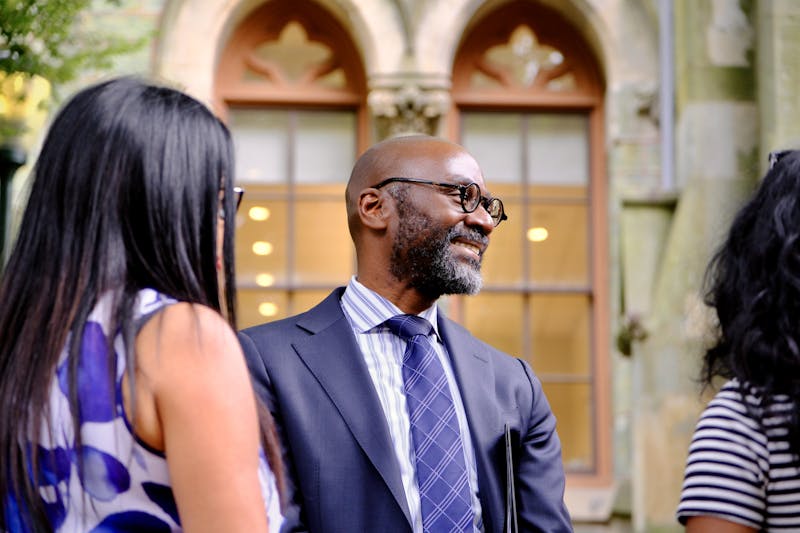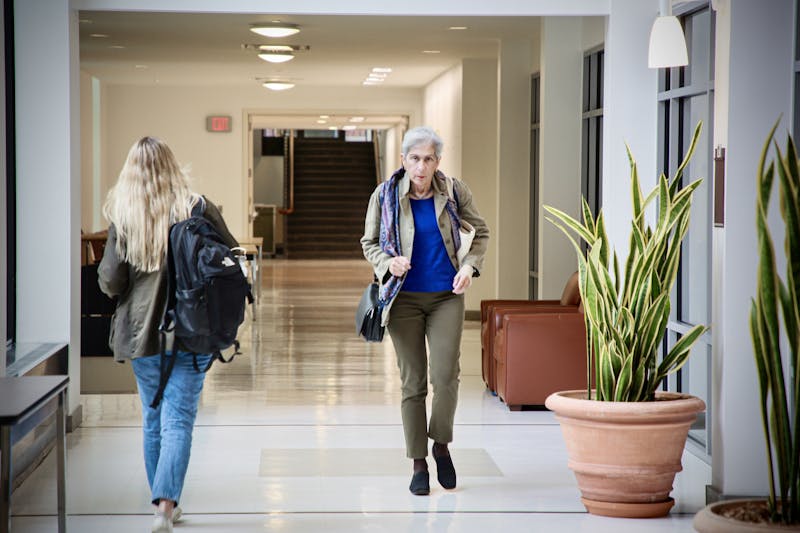The Penn Stroke Center of the Hospital of the University of Pennsylvania is the first stroke center in Philadelphia to receive national certification from the Joint Commission on the Accreditation of Healthcare Organizations.
The center received the award last Monday, and is among the first academic hospitals in the nation to receive the accreditation.
JCAHO is an independent, nonprofit organization founded in 1951, and is the nation's main accrediting group in health care. Basically, this organization gives "gold seal of approval to say your program is good," Stroke Center Director Scott Kasner said.
"This prestigious certification formally recognizes the ability of our center to provide fast, highly skilled treatment that improves stroke patients' chances of recovery," Penn Health System Chief Executive Officer Ralph Muller wrote in a press release.
Kasner said the center receives about "400 patients per year, a little more than one each day." Stroke is the third leading cause of death in the country after heart disease and cancer.
Strokes are a risk for people of all ages, and young people are seen in the unit occasionally.
In young adults, Kasner said, "Strokes are due to weird things [such as] an increased tendency of blood to clot in the brain and the neck."
The unit just treated a 17-year-old who had a stroke after playing in a hockey game, and the Children's Hospital of Philadelphia has treated 1-day-old stroke victims.
"After three hours, there is no proven therapy" for a stroke, Kasner said. The question then becomes whether treatment can be delivered effectively within three hours.
"Two percent of patients nationwide in this time period get treated," Kasner said. "Penn [treats] 10 percent."
Colleen Pellegrini, research coordinator at the Department of Neurosurgery and a 1999 Penn graduate, suffered a stroke at the end of her freshman year at Penn.
"It didn't occur to me at 19 [that] I was having a stroke," she said. While recuperating from a small diagnostic procedure, she remembers her left hand falling to her side. "It felt as if my left hand was dead," she said.
When she began to experience the same feeling extending to her left leg and left side of her face, she called her doctor.
She and her mother reached the emergency room within an hour and a half after the symptoms began, and by this time, her left leg was completely paralyzed. She was put in a wheelchair, and the triage nurse called the stroke team after speaking with her. At the time, she said she thought to herself, ""The stroke team -- what can they do for me?' Thank God for the stroke team."
She had no other risk factors, did not smoke and was not overweight. The cause was a hole in her heart through which a clot had reached her brain.
Pellegrini said that all people have this hole in their heart in utero, but it normally closes up at birth. "For 25 percent of Americans, the hole doesn't close up," which is often not a problem, "but for me it was."
She regained the use of her leg and arm two days later, and now only has a tiny bit of trouble with her left hand. However, strokes are the leading cause of serious disability in the nation. Pellegrini thinks that she "wouldn't have recovered as well if [she] had gone anywhere else."
The Daily Pennsylvanian is an independent, student-run newspaper. Please consider making a donation to support the coverage that shapes the University. Your generosity ensures a future of strong journalism at Penn.
DonatePlease note All comments are eligible for publication in The Daily Pennsylvanian.







